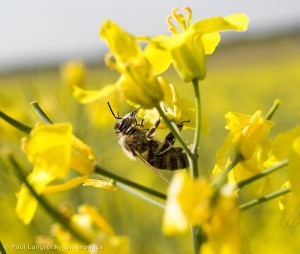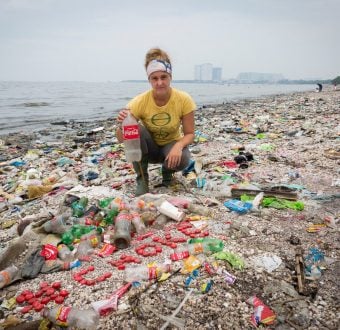Its been widely reported now that neonicotinoids, a class of pesticides, are significantly linked to a steep decline in bee populations. Now, it seems the insecticides are also impacting bird populations in Europe.
Dutch scientists have found a connection between a certain neonicotinoids and a decline in common bird populations including warblers, swallows, starlings and thrushes.
Imidacloprid, a neonicotinoid chemical and popular pesticide in agriculture, attacks the insects nervous system and is intended to pose a lower threat to mammals. Neonicotinoids make up 40 percent of pesticides globally.
The insecticides are accumulating over time into the soil and water and can remain in certain soil types for two to three years. This leads to an impact on several insects as well as on the birds that eat them.
The scientists believe that the insecticides, which are mainly used to coat seeds, are leaching into the soil and water and accumulating over time. They argue that in some soil types, neonicotinoids can persist for two to three years.
 In the US, the loss of 30-40 percent of commercial honeybee colonies since 2006 has been linked to colony collapse disorder,” a syndrome characterized by disappearing worker bees. Since 2004, losses of honeybee colonies have left North America with fewer managed pollinators than at any time in the last 50 years. In recent winters, bees colony mortality in Europe has averaged about 20% (but up to 53% for some countries).
In the US, the loss of 30-40 percent of commercial honeybee colonies since 2006 has been linked to colony collapse disorder,” a syndrome characterized by disappearing worker bees. Since 2004, losses of honeybee colonies have left North America with fewer managed pollinators than at any time in the last 50 years. In recent winters, bees colony mortality in Europe has averaged about 20% (but up to 53% for some countries).
Without insect pollination, about one third of the crops we eat would either have to be pollinated by other means, or face considerably lower yields. In all, up to 75% of our crops would suffer some decrease in productivity. Undoubtedly, the most nutritious and interesting crops in our diet (including many key fruits and vegetables), together with some crops used as fodder in meat and dairy production, would be badly affected by a decline in insect pollinators.
There has been progress in removing neonicotinoids from agricultural use. The European Union recently placed a two-year ban on the insecticides and the US Fish & Wildlife Service has begun a phase out of neonicotinoids in federal lands in the Pacific region.



